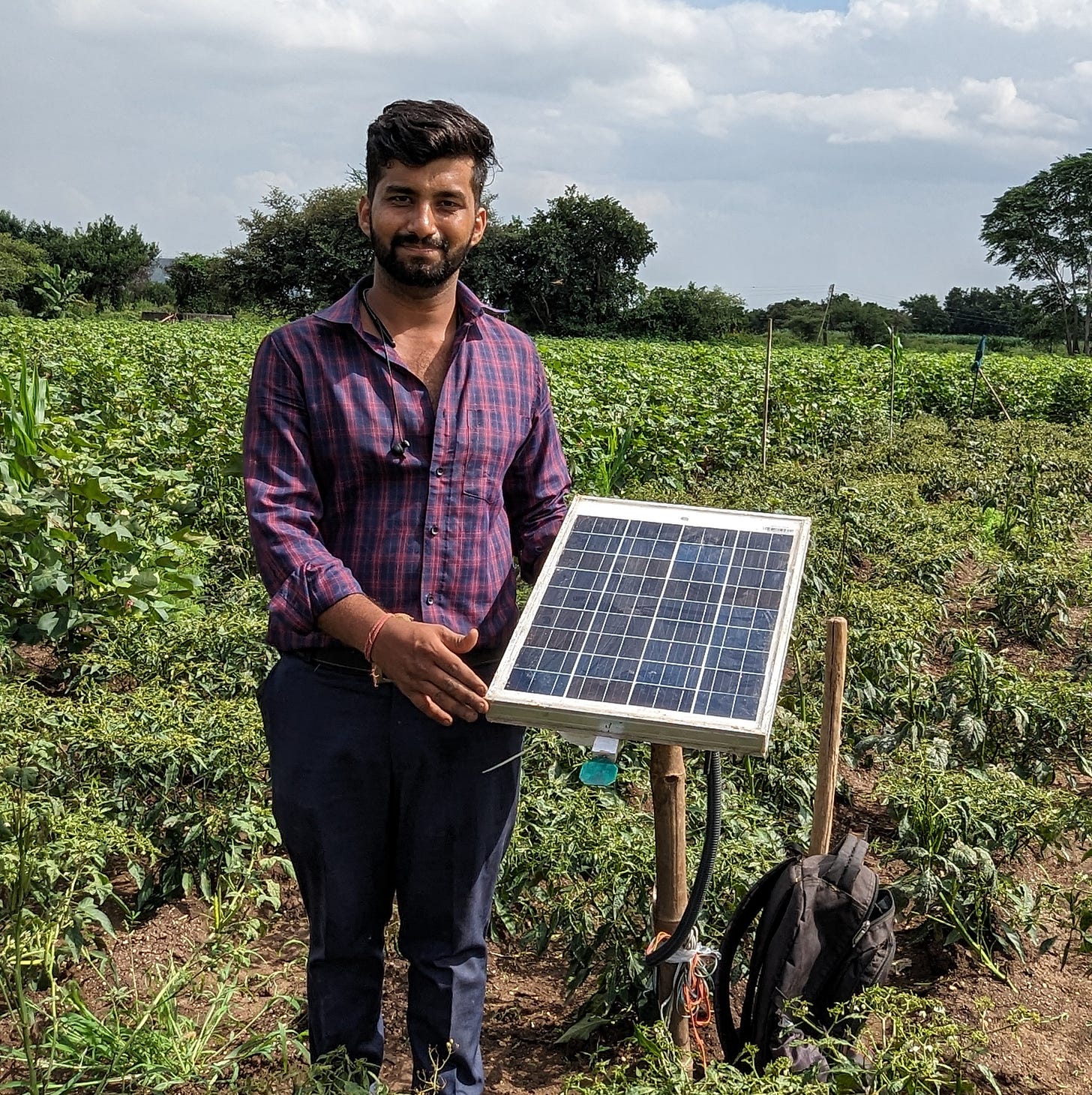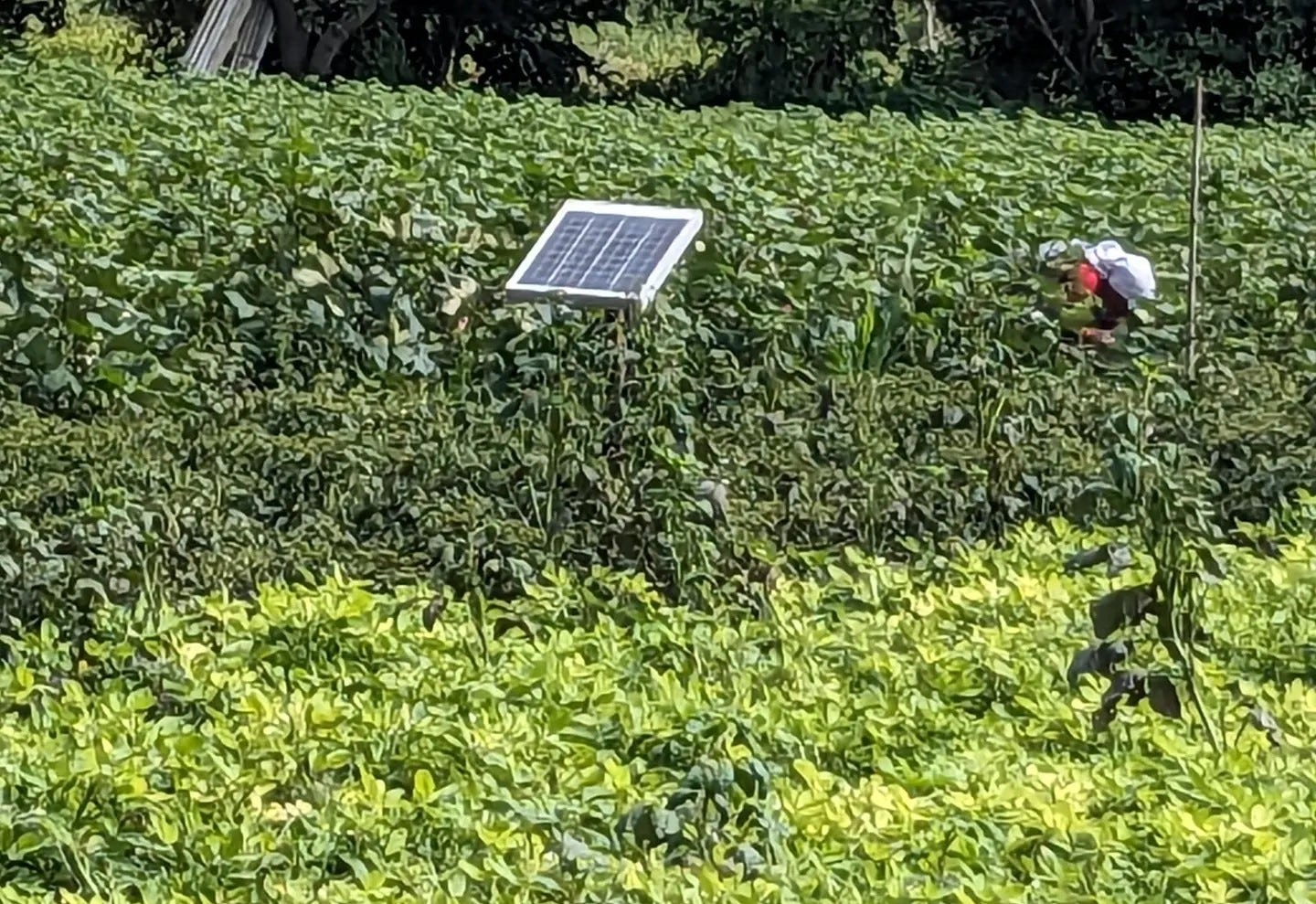While most startups tend to stem from urban settings, Sameer Pitale’s journey inspires individuals aspiring to make a difference in rural and semi-urban regions, particularly in agriculture.
His ground-breaking solution emphasizes technology’s significant impact in addressing critical issues while improving productivity, sustainability, and profitability in farming.
Sameer Pitale – A true engineer at heart

Sameer Pitale is a mechanical engineer from Aurangabad, a tier-2 city in Maharashtra. He began his entrepreneurial experience with simple yet powerful motivation from his father, telling him, “Whatever you do, make it big!”. With unwavering determination, he set out to do just that.
His relentless pursuit of knowledge and growth earned him the rare achievement of being one of the 80 individuals selected across the globe for the prestigious Stanford SEED Spark program – a highly competitive program to get into.
His engineering background has also equipped him to be a problem solver with a structured approach, enabling him to turn technical knowledge into practical solutions, a valuable skill for developing innovative products like a pest-prediction device.
Let’s pause for a second and understand…
…Where it all began
A couple of years ago, Sameer participated in the Startup India (a Government initiative to support bidding entrepreneurs) Competition, where he discovered immense potential in the agriculture market.
He conducted thorough research to understand the agriculture sector and its latent issues. Sameer identified the inefficient and indiscriminate usage of pesticides among farmers as a significant problem, and based on his observations, he categorized farmers into two groups:

Around 20-25% of crops are lost due to pests and preventive diseases, substantially reducing agricultural productivity and profits. Additionally, the overuse of pesticides results in escalated expenses for farmers and contributes to an annual biodiversity loss valued at $1.1 Billion.
These hard facts make it clear that there is a dire need to tackle problems within the agriculture sector, and Sameer’s initiative is a step in this direction.
Developing the Comprehensive Solution
Sameer developed a pest-prediction device with ten solar-powered sensors that provide real-time information on potential preventive crop diseases.
Through advanced algorithms and hourly data collected from soil and air, it recommends optimal pesticide spraying frequencies, empowering farmers to make informed decisions and optimize their farming practices, effectively bridging the gap between preventive and reactive pest control practices, resulting in reduced pesticide usage and preventing crop losses.

But it’s not that simple to enter the market and sell your product to your target customers.
Overcoming Challenges through Support
Sameer got onboarded in the NIDHI-EIR Program at Deshpande Startups, which gave him access to the idea-market validation program, EDGE. The program equipped him with essential knowledge about customer discovery and market validation and required him to head to the field and engage with potential customers.
During his early interactions, he found explaining his product to the farmers challenging due to minimal awareness about such technological interventions. But he kept at it and continued to interact with more potential customers.
Soon, he realized that a significant percentage, approximately 22 to 30%, of farmers were familiar with similar devices, indicating a growing interest in the market. They recognized the potential advantages of Sameer’s solution in mitigating losses and were open to investing in the product.
Reflecting on his experience through the program,
Sameer says, “The JTBD (Jobs To Be Done) framework helped me immensely. The facilitators were amazing and pushed me out of my comfort zone,” encouraging Sameer to persist in his efforts.
With customer interest validated, he now needed money in the bank to build his product.
Sameer secured an amount of 18 Lakhs from SISFS (Startup India Seed Fund Scheme) and HDFC Smartup Grant to build his product.
The Road Ahead
Sameer has a clear set of actionable steps for his venture over the next six months. He aims to refine his prototype and produce ten Minimal Viable Products for the pilot stage, taking one more step towards bridging the gap between urban and rural areas of society.
The rising population’s demand for food, biofuels, and animal products requires crop yield production to double its output by 2050. To achieve this goal, essential crop yields must improve by 2.4% each year, but 20 to 40% of the crops are lost to pests annually.
In conclusion, the urgency of implementing measures to control pest infestation in agriculture is not an overstatement. The use of cutting-edge technologies such as machine learning models and AI holds immense potential in addressing this critical issue, with their demonstrated accuracy rates exceeding 95%. This tells us that there is a dire need for innovative solutions in agriculture.
Like Sameer, more than 1,000 agri-tech startups in India are actively contributing to transform the nation’s agricultural sector. Their innovative approaches primarily focus on sustainability and efficiency for farmers, who are the backbone of this society. These collective efforts are setting a more resilient and productive foundation for the agriculture sector for years to come.

